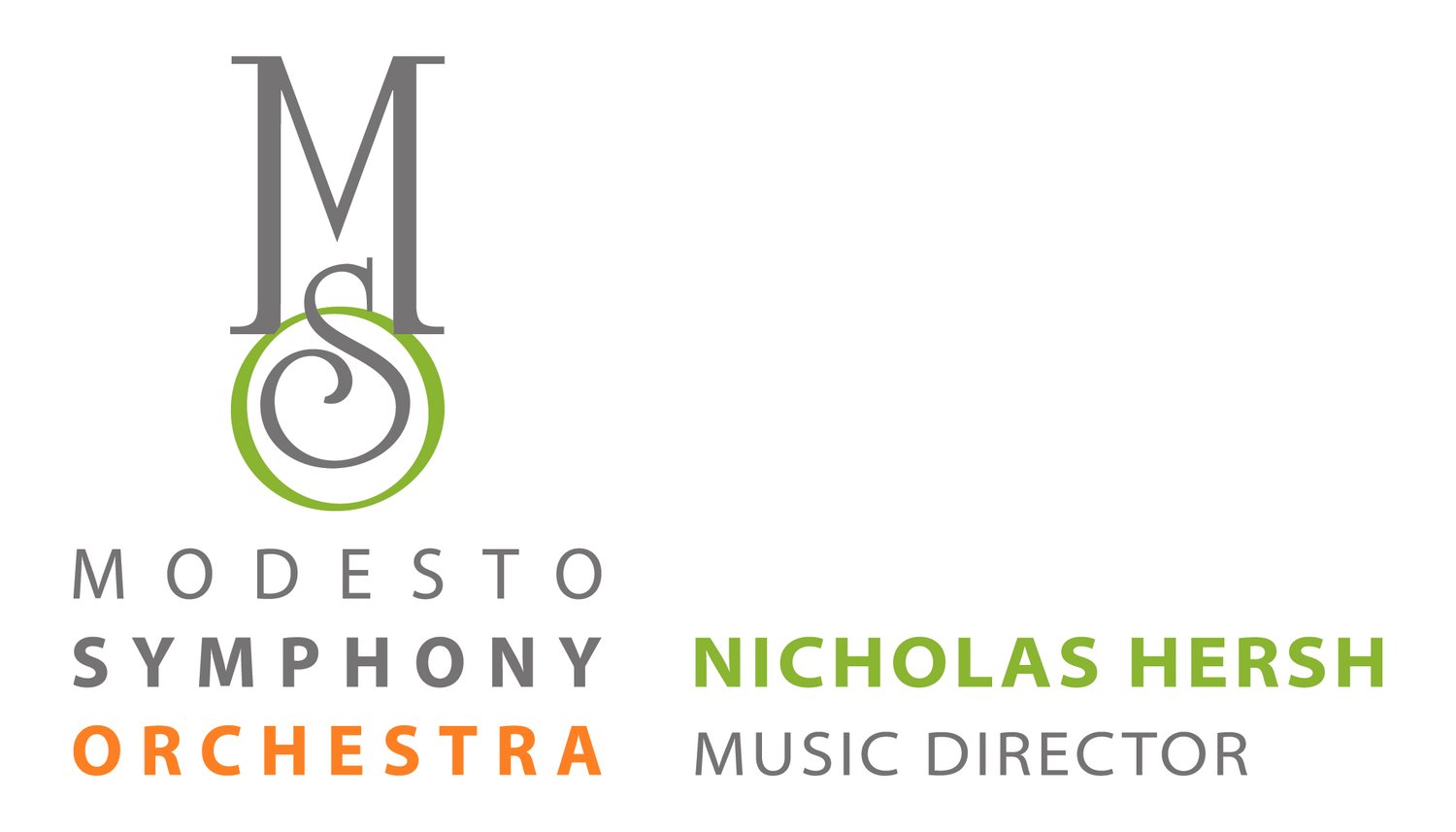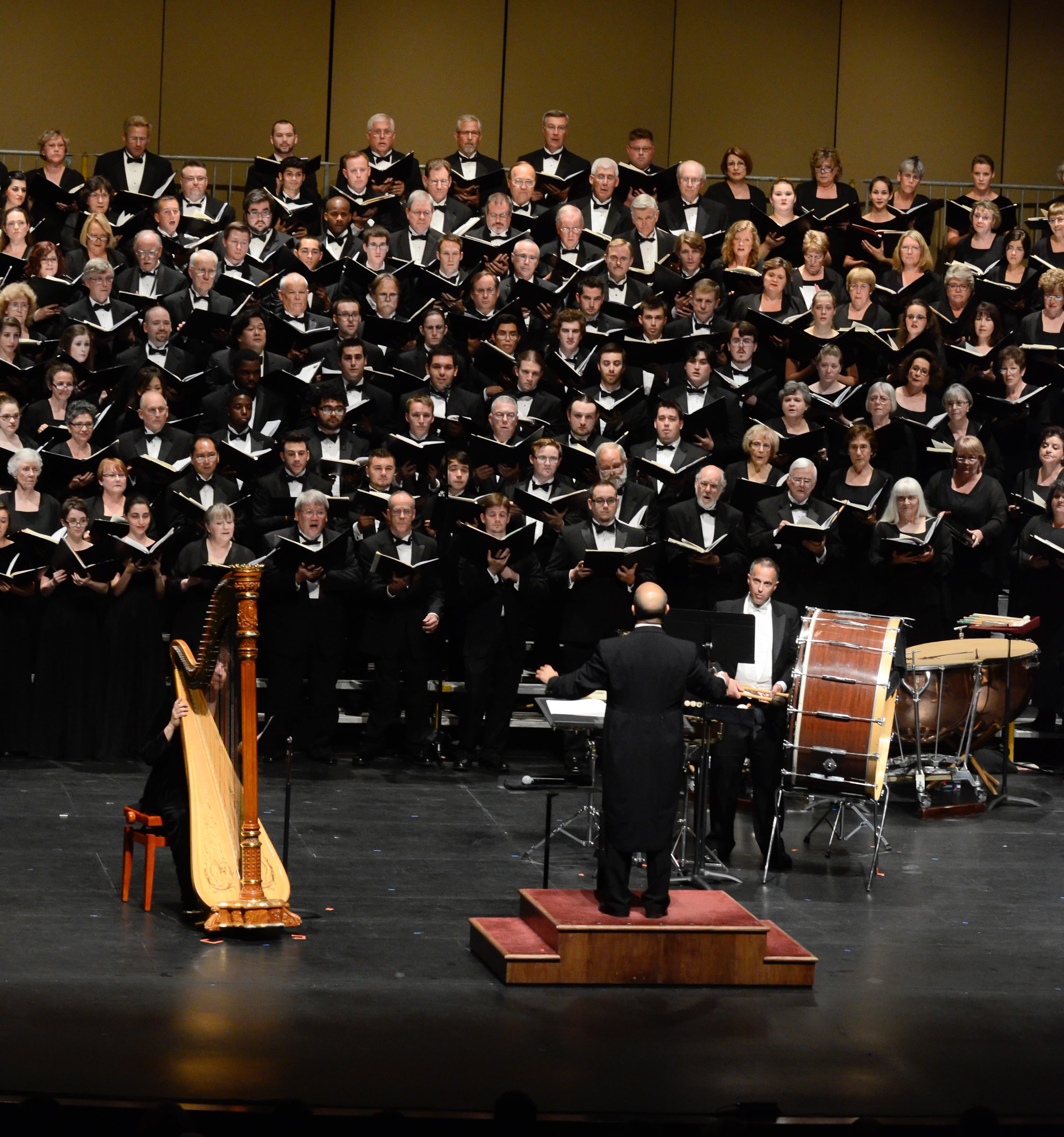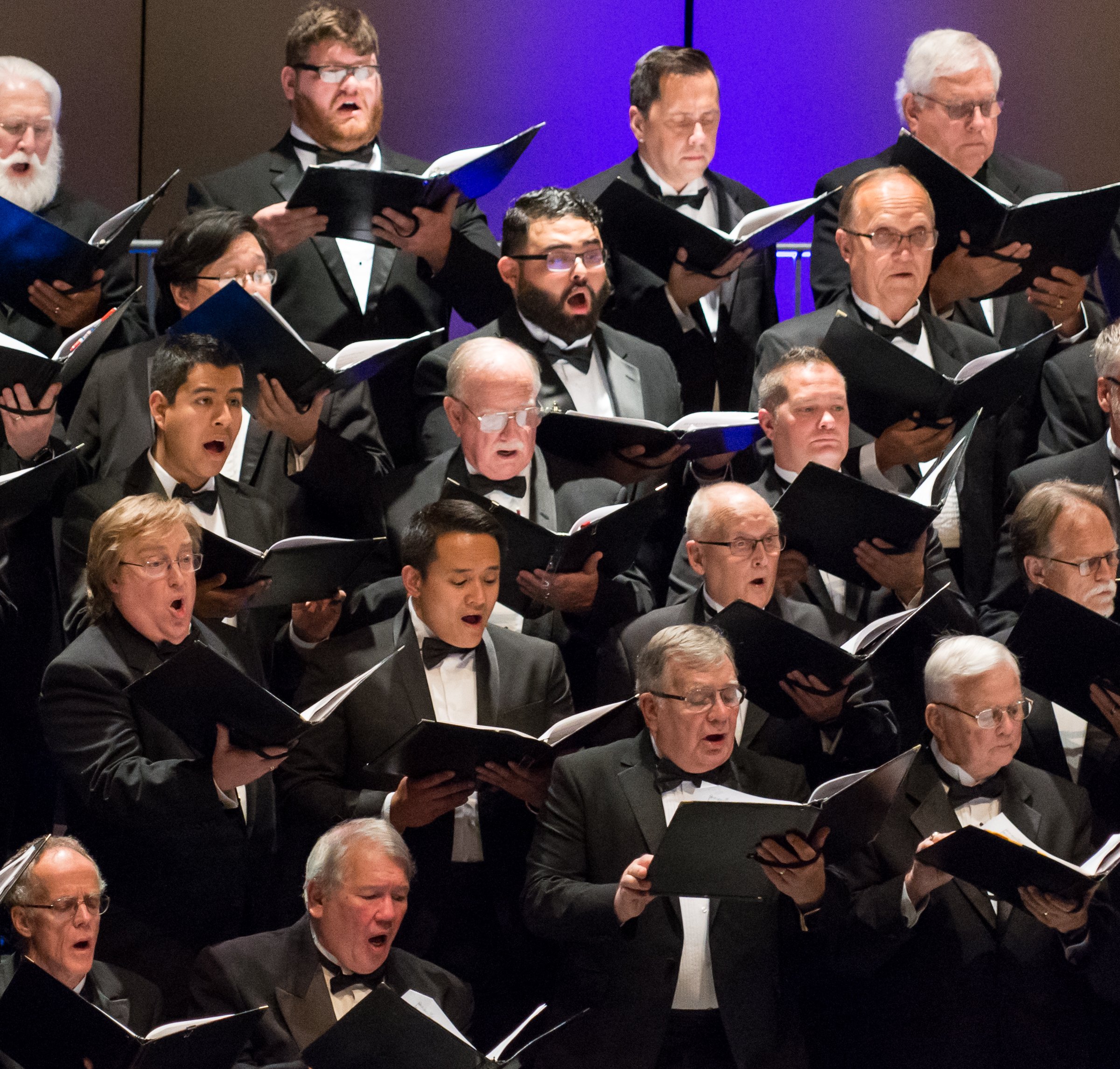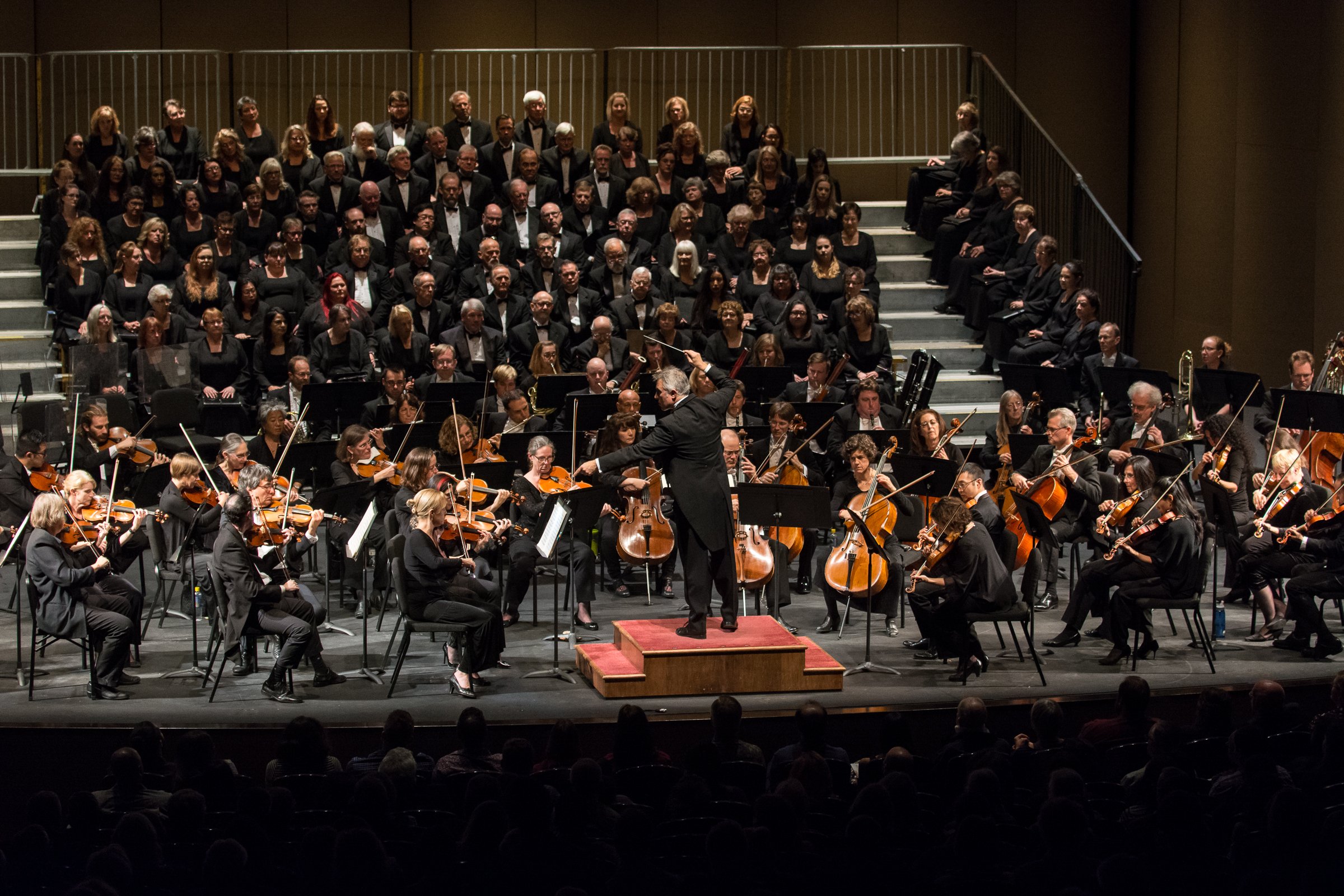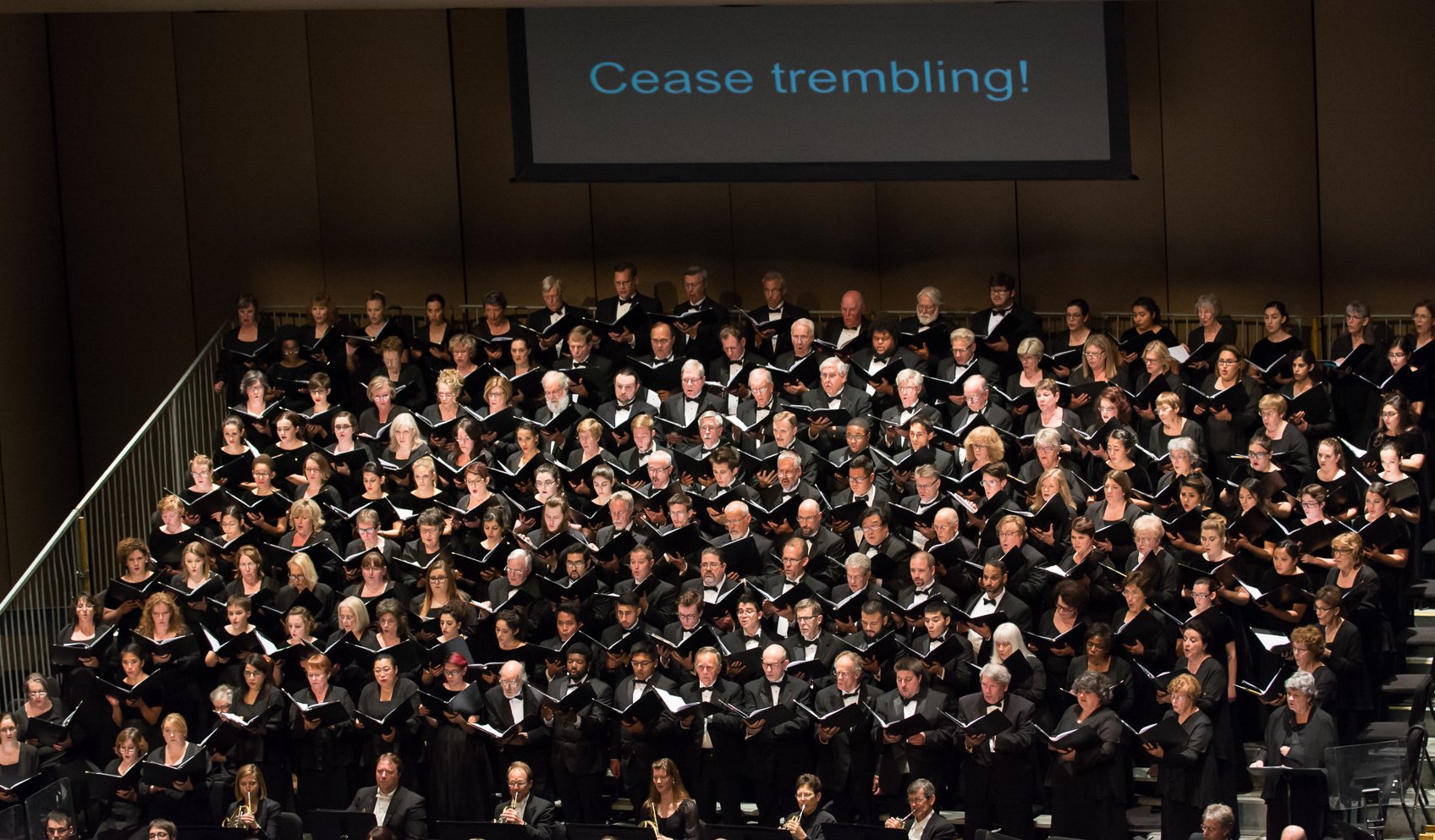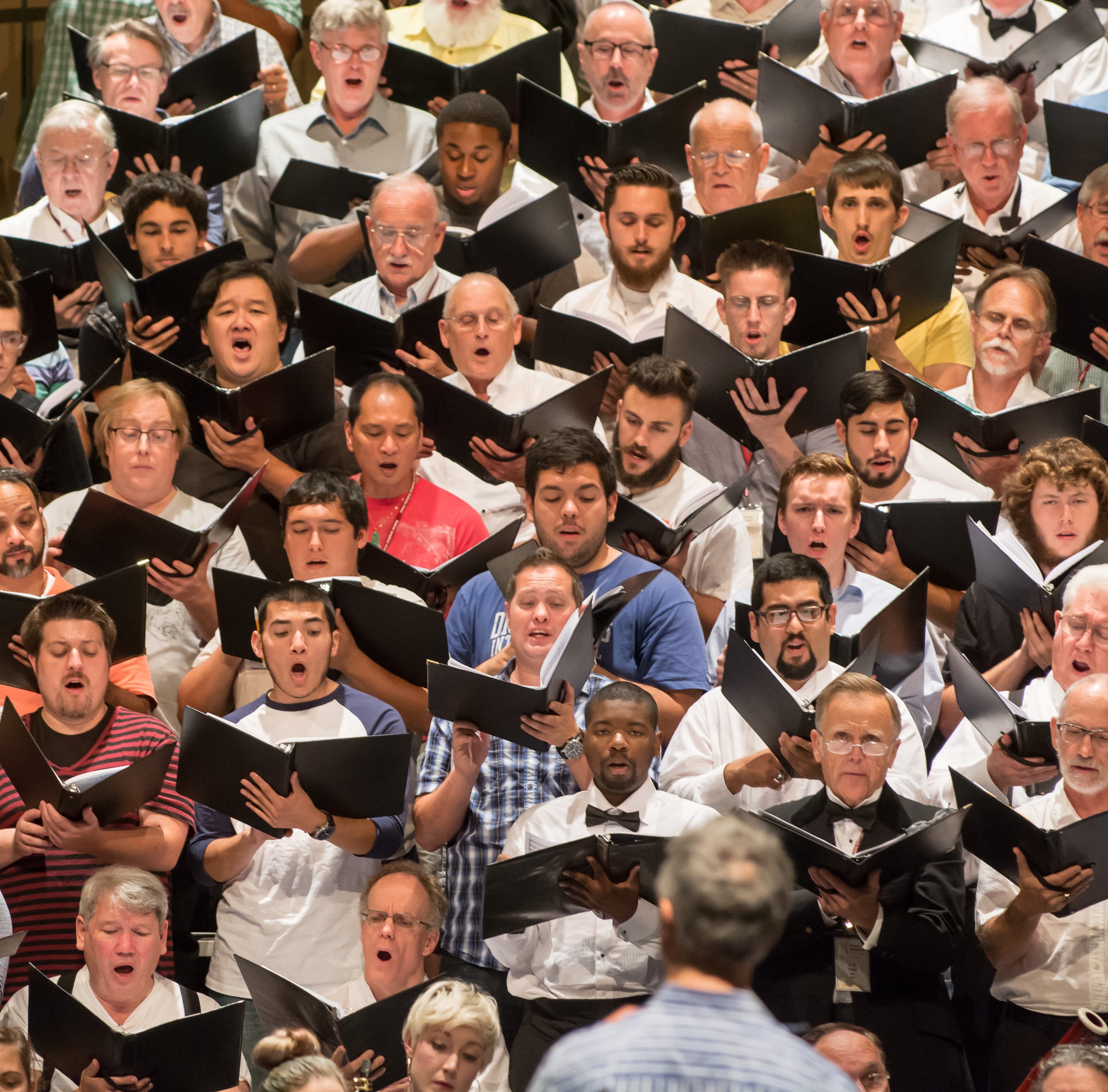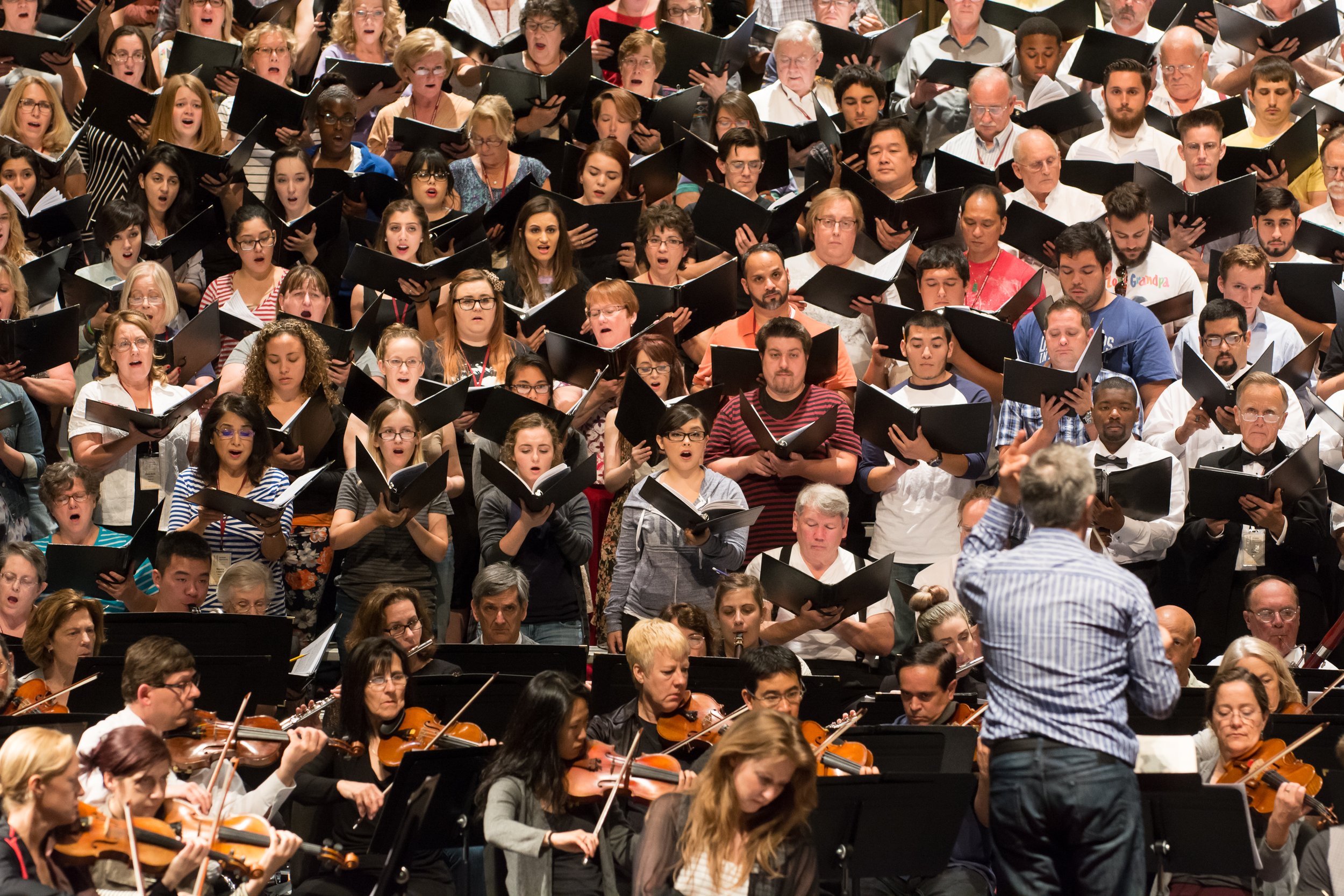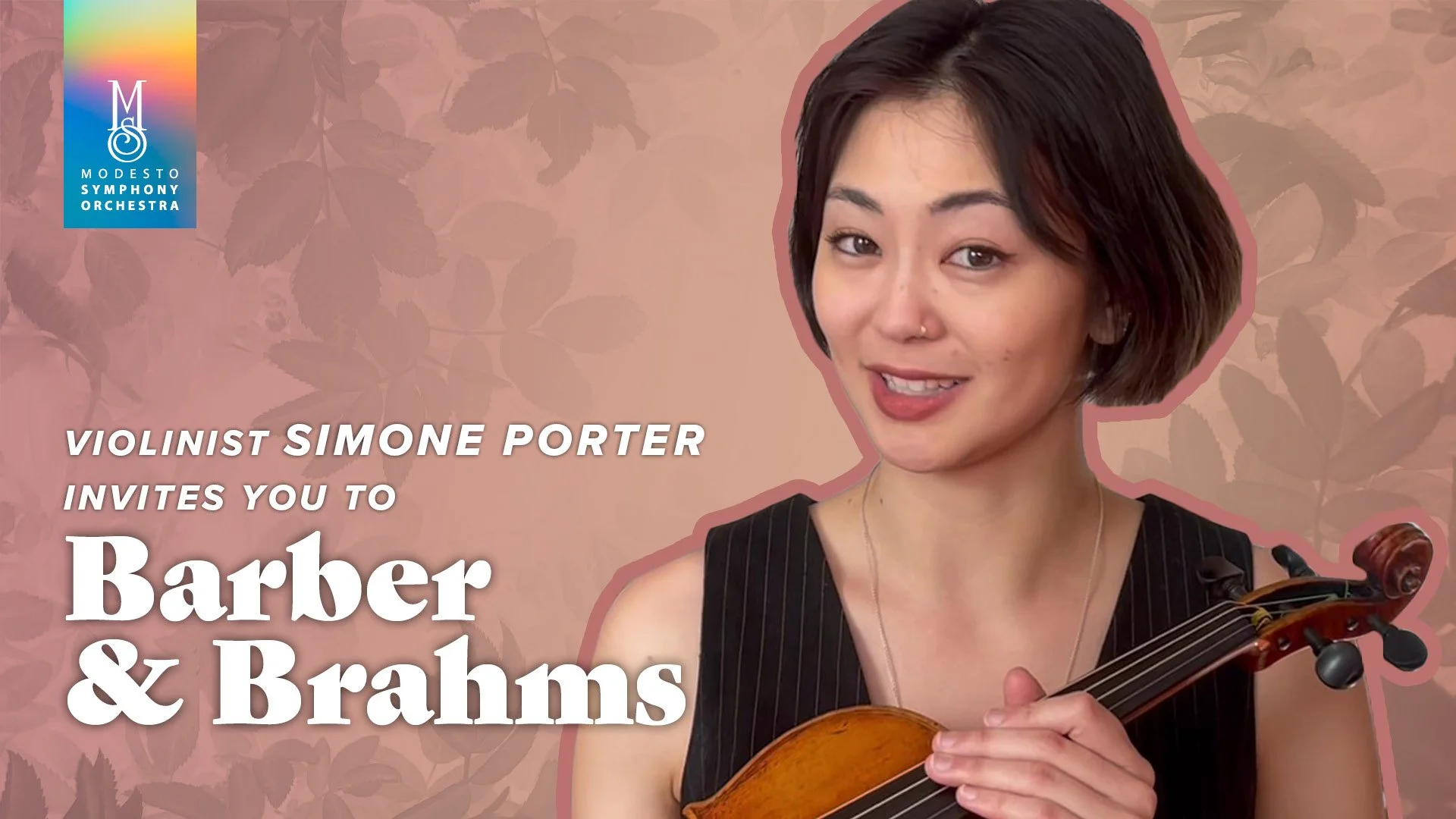Since returning to in-person rehearsals and concerts last season, the MSO Chorus has been steadily working on returning to its full power. We’ve enjoyed their performances at our Holiday Pops! and Holiday Candlelight Concerts, but this May will mark the first time they’ve performed in a Classics Series concert since 2019.
We chatted with chorus director, Dr. Daniel R. Afonso Jr. to gain more insight into our beloved chorus and their return to stage with Mozart’s Requiem.
MSO: Can you give our audiences a brief background of Mozart’s Requiem?
Daniel Afonso, chorus director: Mozart’s Requiem is certainly one of the composer’s best known works—and there are certainly plenty of reasons for it. The music itself is beautiful and full of expressive elements that have made the work very popular for centuries, but the Requiem has also been shrouded in mystery and the subject of folk tales and much gossip. Everything started with Mozart receiving a commission from a mysterious Viennese patron to write a Requiem for his wife—the patron wanted to remain anonymous, sent a messenger to talk to Mozart. To complicate things further, the composer died (at age 35!) while working on this music and before being able to complete the full work. Although we now know much more about the origins of the Requiem, these “tales” and conflicting stories about the work continue to feed audiences and performers with some extra “drama” that adds to the work’s overall appeal.
Another element that contributed to Mozart’s Requiem popularity was the highly fictionalized movie about the composer’s life that came out in 1984, Milos Forman’s Amadeus. It was while watching the movie that I learned about the Requiem and fell in love with it. Later, in 2012, I had one of the highlights of my music career when I had the privilege of conducting the CSUS Chamber Singers and members of the MSO Chorus in a performance of Requiem at Lincoln Center, in New York City.
MSO: There are many iconic sections to the Requiem, like the “Dies irae” and the “Lacrimosa.” What about these sections of the Mozart Requiem do you think audiences will find most exciting to hear or see performed live?
DA: Yes, these two movements do have the most recognizable music of this entire work. And I believe this is due to Mozart’s ability to write music that perfectly depicts the character and meaning of the text. These two movements are part of a larger section of the Requiem called “Sequence” that describes the “judgment day.” The Dies irae begins this section and the Lacrimosa ends it. In the Dies irae, the words describe judgment day as a “day of wrath” when the world will “dissolve in ashes.” And in the Lacrimosa, the words depict a “tearful day” when “the guilty man will rise from the ashes to be judged.” These are powerful and colorful images that Mozart expertly matches to equally powerful and ingenuously constructed musical ideas. The result is music that is both beautiful and expressive, full of different colors and musical elements that at the same time intrigue and fascinate the listener.
